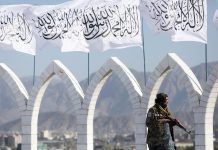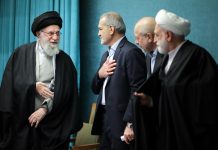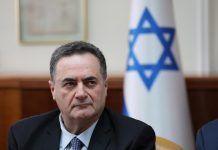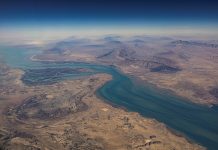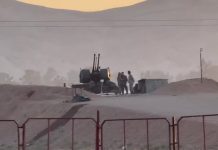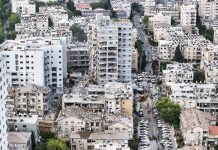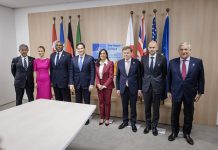Kayhan Life Staff
The National Union for Democracy in Iran (NUFDI) officially launched its much-anticipated series of academic white papers as part of the “Iranian Prosperity Project” (IPP).
During his opening remarks, Dr. Saeed Ganji, NUFDI’s President, presented the project’s central question: What will follow the fall of the Islamic Republic?
He emphasized the importance of taking steps to prevent Iran from descending into the chaos experienced by Syria or Iraq. Dr. Ganji also credited Prince Reza Pahlavi for bringing together the project’s management team: Mohammad Reza Jahanparvar, Amir Sharif Emami and Saeed Ghassemi Nejad.
View this post on Instagram
In his keynote address, Prince Reza Pahlavi emphasized that the IPP is built on actionable plans and solutions to foster stability and prosperity in a free Iran. He pointed out that the white papers presented during the conference served as working documents and invited Iranian experts to collaborate with the IPP team to strengthen and develop the initiatives.
In recent years, the declining value of the rial has worsened the cost of living in Iran. According to a report from Iran’s statistical authority, approximately one-third of Iranians earn less than $2 a day and find it difficult to afford basic necessities.
President Masoud Pezeshkian was elected promising economic improvement and better living conditions for Iranians. But his government announced a 200 percent increase in military spending for the Persian year beginning in March, and higher taxes to boost government revenue, which has been hit by rising sanctions.
At the NUFDI launch, economist Mohammad Reza Jahanparvar delivered a presentation titled “The First Budget of a Free Iran: Creating a Foundation for Prosperity.” He emphasized that one of the important priorities during the interim government would be to maintain the integrity of the government in the difficult days after the regime’s collapse, and to be braced for a 20 to 50 percent revenue decline.
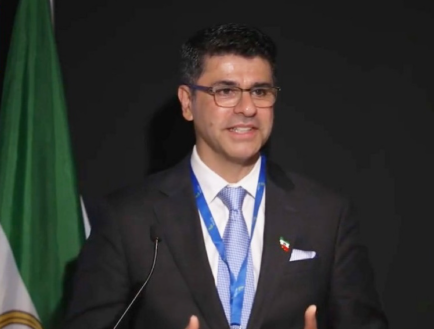
He proposed eliminating ineffective institutions, enhancing budget transparency, tackling corruption, and improving international communication for sanctions relief during the first 180 days of the interim government.
With unemployment increasing steadily, millions of people in Iran are struggling to meet their basic needs, as crippling inflation and poverty continue to haunt the nation. The sharp depreciation of the currency has pushed inflation above 40 percent, with food prices in some cases rising as much as 100 percent.
One of the working papers from the IPP tackles the significant healthcare crisis in Iran. During her address at the conference, Princess Noor Pahlavi, who has spent several years working in the health sector in the United States, emphasized that healthcare is a human right, not a policy issue.
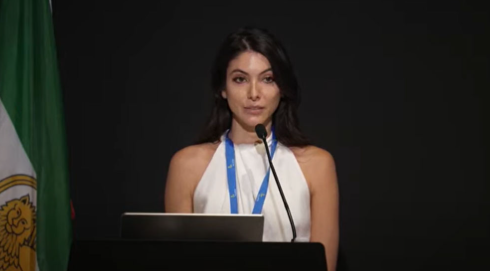
Princess Noor pointed out that Iranian citizens receive limited services, despite paying hefty health insurance premiums, a result of mismanagement, negligence, and corruption.
She highlighted that out-of-pocket expenses account for around 40 percent of healthcare costs—one of the highest rates in the Middle East region—and that these costs are expected to rise further. As a result, many parents find themselves caught in a tough spot, having to choose between obtaining medication for their children and meeting other essential needs.
The Iranian Prosperity Project is based on ten guiding principles aimed at fostering economic growth by empowering individuals, promoting government support for opportunities, rewarding innovation and entrepreneurship, and respecting private property rights.
Key aspects include allowing market mechanisms for transactions, establishing an independent central bank to control inflation, increasing women’s workforce participation, and reintegrating Iran into the global economy to attract investment.
The implementation plan is structured in three distinct phases. The first phase aims to achieve both financial and social stability within the first 100 days following the collapse of the regime. This stage involves establishing an interim budget and stabilizing the currency to ensure a smooth transition.
Moving into the second phase, the focus shifts toward fostering political and legal stability. During this period, efforts will be concentrated on drafting a new constitution and building robust democratic institutions that can support a healthy governance structure.
Finally, the third phase is dedicated to long-term economic reconstruction. This stage aims to create a conducive environment for investment, both domestically and from abroad, paving the way for sustainable growth and development.
To Watch the Conference:
Regime Change Is Only Solution For Iran, Say DC Conference Speakers



